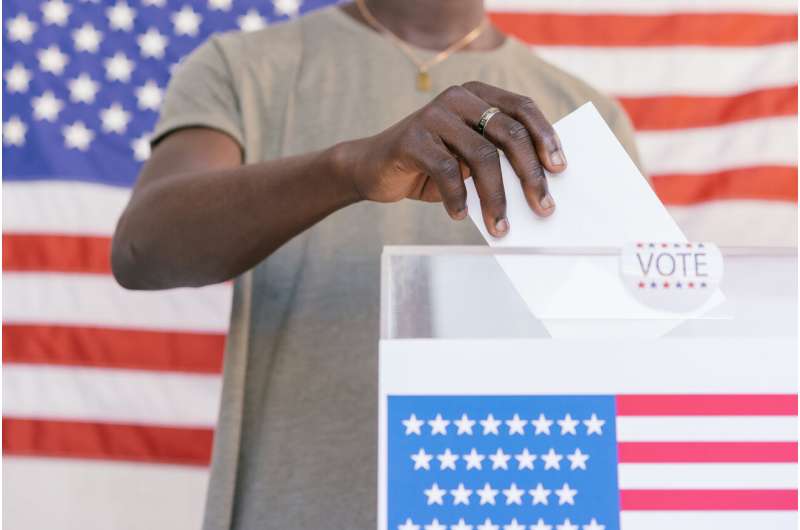This article has been reviewed according to Science X's editorial process and policies. Editors have highlighted the following attributes while ensuring the content's credibility:
fact-checked
trusted source
proofread
In person or online? Researchers find people's stated support for democracy depends on how they're asked

Americans may be less satisfied with U.S. democracy than previously thought and new survey methods may have something to do with that disconnect, according to researchers at Georgia State University.
Judd Thornton, an associate professor in the Department of Political Science, recently conducted a study using American National Election Studies data from 2012 and 2016 to gauge how satisfied U.S. citizens are with American democracy, and how much that sentiment may be influenced by how they were surveyed.
"The basic idea was that when people are by themselves, answering questions over the internet, they could be a little more truthful," Thornton said. "There's some idea that liking democracy is good, so you don't tell someone who's knocking on your door that you aren't satisfied with it."
This study is a continuation of work on a theory first put forward in the 1940s that now has a lot of literature to back it up.
Thornton's study, "Survey Mode and Satisfaction With Democracy," published in Political Science Research and Methods, found there was a 20% decline in reported satisfaction with democracy when comparing the results from the 2012 and 2016 surveys.
According to the article, 65% of respondents in 2012 were interviewed online, while 71% had been interviewed online in 2016. In the years prior to 2012, the interviews were conducted almost entirely face to face, with a small percentage over the phone.
"The optimistic take is that some of the documented decline in positive attitudes is actually a function of switching over to interviewing by the internet," he said. "I think through 2010 or so, we're probably overestimating satisfaction levels."
The person-to-person nature of surveys before 2010 most likely caused more people to report that they were happy with American democracy than actually were, he said.
Thorton and his fellow researcher, Georgia State political science Ph.D. student Hamad Ejaz, also looked at results from the 2020 survey, which reported even lower satisfaction than 2016.
"Survey mode doesn't account for all of the decline though, so there is a genuine decline in warmth for democracy, but this is a specific incident in this long-standing theory about survey method," Thornton said.
He also noted this decrease in reported satisfaction in democracy is part of a global trend.
"Political scientists have spent a lot of energy over the last 20 years documenting attitudes about democracy, especially as democracies are on the retreat in certain parts of the world," Thornton said.
In the U.S. specifically, citizens may just be tired of political polarization, which is the focus of the next study Thornton is working on.
"The public just doesn't want every election to feel like this existential choice," he said.
More information: Hamad Ejaz et al, Survey mode and satisfaction with democracy, Political Science Research and Methods (2023). DOI: 10.1017/psrm.2023.32
Provided by Georgia State University





















